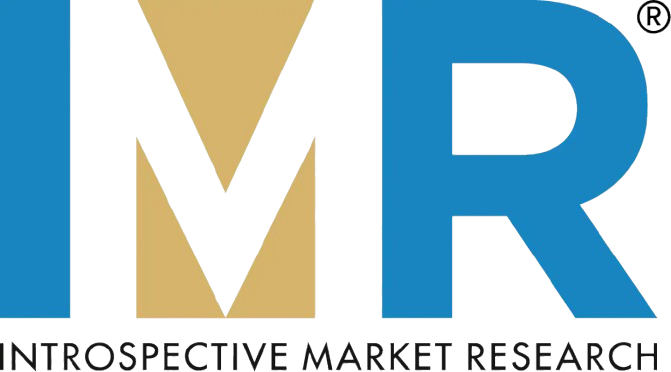Global Anti-Fungal Drugs Market to Surge to USD 21.2 Billion by 2032

Global Anti-Fungal Drugs Market to Surge to USD 21.2 Billion by 2032
The global surge in fungal infections particularly in immunocompromised individuals such as cancer patients, transplant recipients, and the elderly is fuelling the demand for effective anti-fungal therapies. Improved diagnostics and a wave of innovation in drug development, including combination therapies, are further propelling market expansion. Conversely, growing fungal drug resistance and a lack of entirely novel antifungal classes pose significant challenges.
Quick Insights
- Market size (2023): USD 15.5 B
- Projected market (2032): USD 21.2 B
- Forecast CAGR (2024–2032): ~5.9%
- Fastest-growing drug class: Echinocandins (due to safety and low resistance)
- Dominant drug class (by value): Azoles (e.g., fluconazole, itraconazole)
- Leading application segment: Systemic infections (e.g., invasive candidiasis, aspergillosis)
- Top end user: Hospitals and specialty clinics, driven by severe systemic cases
- Leading region: North America, supported by strong R&D investment and favorable drug policies
- Key companies: Astellas Pharma; Bayer AG; Dr. Reddy’s; Cipla; GSK; Pfizer; Johnson & Johnson; Sun Pharma; Novartis; Sanofi; Teva; Glenmark, among others.
Revenue Breakdown (2023 vs Forecast)
|
Segment |
2023 Revenue |
Forecast (2032) |
|
Total anti-fungal drugs market |
USD 15.5 B |
USD 21.2 B |
|
By Drug Type (dominant) |
Azoles (largest share) |
— |
What’s Driving the Opportunity?
Why is the anti-fungal drugs market heating up?
- Combination therapy innovation: Co-administration of echinocandins (which disrupt fungal cell walls) with azoles has shown synergistic effects, especially against resistant strains.
- Personalized medicine trend: Clinics are increasingly tailoring antifungal regimens to individual patients, boosting demand for sophisticated therapies.
- Emerging markets expansion: Rapid urbanization, rising chronic disease burdens (e.g., diabetes, cancer), and improvements in healthcare infrastructure in India, Brazil, Southeast Asia are leading to higher diagnosis and treatment rates.
- Aging population: As global life expectancy rises, more elderly patients with weakened immune systems are prone to fungal infections, increasing the need for antifungal drugs.
Expert Commentary
“Our latest analysis underscores a pivotal moment for the anti-fungal drugs industry,” said Dr. Meera Sharma, Principal Consultant, “While traditional azoles continue to dominate, the real growth engine will be newer, safer classes especially echinocandins and smart, combination regimens that can outmaneuver escalating resistance. Emerging markets likewise represent a massive, under-served opportunity for both established and emerging pharma players.”
Regional & Segmentation Highlights
- North America remains the largest regional market, propelled by robust research funding, mature diagnostics infrastructure, and aggressive adoption of novel therapies.
- In the Asia-Pacific, notably India and China, tropical climates, rising healthcare access, and a growing middle class are driving antifungal uptake.
- Drug Type: Azoles lead the pack due to their broad-spectrum activity and multiple forms (oral, topical, injectable), while echinocandins are rapidly gaining ground in systemic treatment.
- Application: Systemic fungal infections (life-threatening) are the biggest revenue contributor, but superficial infections (skin, nails) still account for a large proportion, especially in outpatient settings.
- End Users: Hospitals and specialty clinics dominate usage of systemic antifungals; at the same time, clinics and home-care settings are important for superficial antifungal treatments.
Latest Breakthroughs & Innovations
- Pharmaceutical players are investing heavily in combination therapies (e.g., echinocandin + azole) to overcome drug resistance.
- Several companies are developing novel antifungal compounds with enhanced safety profiles. Although Introspective’s report doesn’t list a specific upcoming launch, the broader industry including companies like F2G is raising significant capital. For instance, F2G recently raised USD 100 million to advance its lead drug olorofim against difficult-to-treat fungal “superbugs.”
- There is also a trend toward long-acting formulations and nanoparticle-based delivery systems (e.g., Gilead’s nanoparticle amphotericin B) to improve tissue penetration and reduce toxicity.
Challenges & Cost Pressures
- Drug resistance remains a major headwind. Many fungal pathogens are evolving resistance to first-line therapies like azoles, limiting their long-term efficacy.
- Limited novel compounds: Despite high unmet need, the antifungal pipeline remains relatively sparse; developing new classes is scientifically difficult and expensive.
- Regulatory and safety burden: Because many antifungal patients are immunocompromised, regulators demand rigorous safety data, increasing time and cost for drug development.
- Access & affordability: In lower-income regions, high costs and weak distribution channels restrict access to newer antifungals; generics dominate, but may not address resistance well.
Case Study Highlight
While not named in publicly available company-specific detail in the report, the trend of combination therapy serves as a de facto case study: hospitals treating invasive candidiasis are increasingly co-administering echinocandins with azoles. This has led to improved outcomes in patient cohorts resistant to monotherapy, reducing relapse rates and hospital stay durations. Such real-world shifts are validating the strategic direction predicted by our market analysis.
Conclusion & Call to Action
As the anti-fungal drugs market builds momentum, stakeholders across pharma, healthcare, and investment sectors have a unique window to align with emerging trends: novel therapy development, combination regimens, and geographic expansion. ’s latest report offers a data-rich roadmap to navigate this complex but high-potential terrain.
To download a sample of the report: https://introspectivemarketresearch.com/request/19712
About
is a leading provider of strategic research and consulting services focused on emerging and established markets globally. We specialize in delivering evidence-based insights, forecasts, and actionable recommendations across healthcare, pharmaceuticals, technology, and industrial sectors.
Media Contact:
Mumbai, India
Phone: +91-74101-03736 / +91-81800-96367
Email: sales@introspectivemarketresearch.com
Website: https://introspectivemarketresearch.com
Australia Reprocessed Medical Devices Market
Bacteriostatic Water for Injection Market
- Sports
- Art
- Causes
- Crafts
- Dance
- Drinks
- Film
- Fitness
- Food
- Spiele
- Gardening
- Health
- Startseite
- Literature
- Music
- Networking
- Andere
- Party
- Shopping
- Theater
- Wellness


